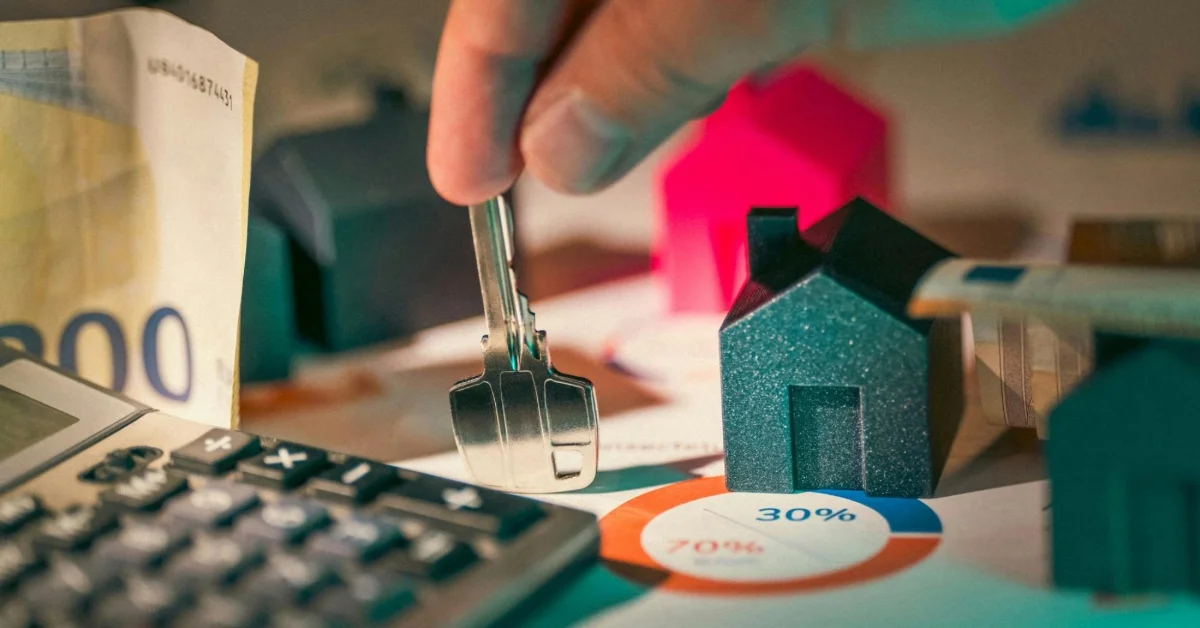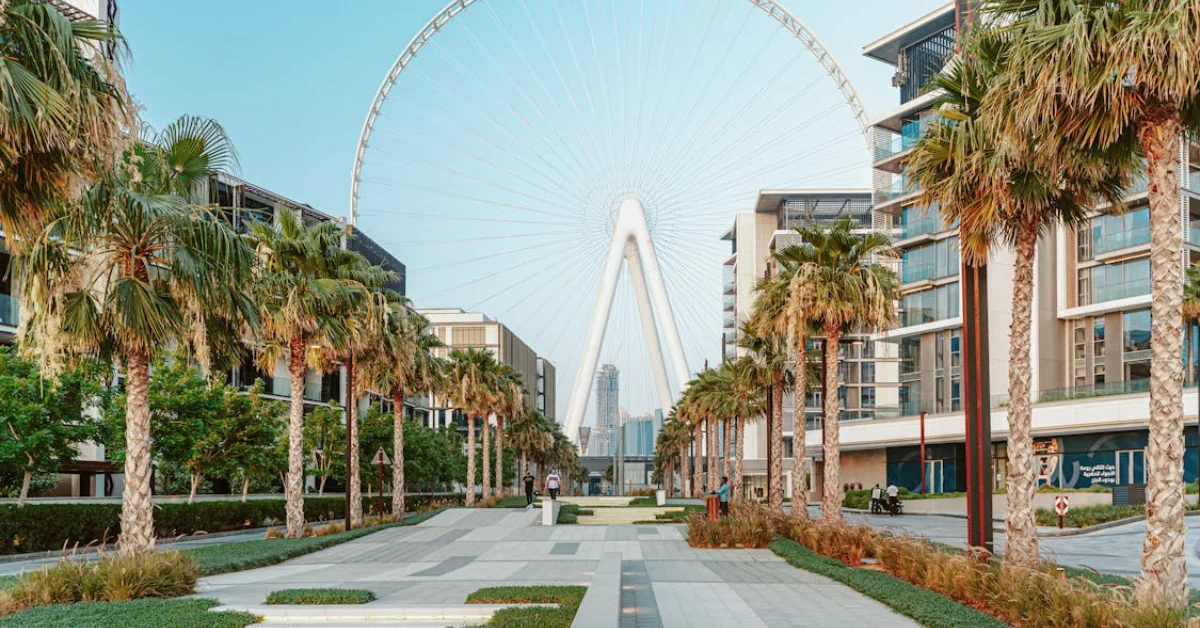Imagine owning a piece of a luxury villa or a high-rise apartment in Dubai without needing to buy the entire property. A pool of investors shares the asset, enjoys a slice of income and appreciation, and benefits from the city’s world-class property market. That is the essence of fractional ownership in Dubai. It opens up prime real estate to more people, distributes the cost and responsibility, but also requires careful due diligence and an understanding of how the model differs from full ownership or a timeshare.
In this guide, you’ll find details on:
- What is fractional ownership?
- How does fractional ownership work in Dubai?
- Key benefits for investors
- Main drawbacks and considerations
- Who is fractional ownership ideal for?
- Fractional ownership vs timeshare vs full ownership
- Popular areas and example entry points
- Top platforms facilitating fractional ownership in Dubai
- Key takeaways
- Frequently asked questions
What is fractional ownership?

Fractional ownership enables multiple investors to own shares in a single real estate asset, such as an apartment or villa, rather than having one person purchase the entire property individually. Each investor holds a specific percentage (commonly 10% or 25%) and is entitled to proportional rights to both rental income and the asset’s appreciation. Unlike a timeshare, fractional ownership means you hold actual equity in the asset, often registered through the Dubai Land Department (DLD) with a title deed reflecting each owner’s share.
How does fractional ownership work in Dubai?
Once investors decide to purchase property fractionally, the next question is how the ownership is structured and recorded. In Dubai, fractional ownership can be arranged in various ways, each offering different levels of control, flexibility, and legal recognition.
Types of fractional ownership structures
- Entity-Based Ownership: Investors jointly buy property via an LLC, LLP, or SPV (Special Purpose Vehicle). The SPV holds title and issues shares.
- Tenancy in Common (TIC): Each investor receives an independent deed, accounting for their ownership percentage. Shares and responsibilities vary by investor.
Legal and regulatory framework
Dubai’s regulators are adapting to support this model. The DLD and Real Estate Regulatory Agency (RERA) enforce transparency and registration. Under federal law (Federal Law No. 5 of 1985) and Dubai Law No. 6 of 2019, joint or shared ownership of property is permitted. The DLD now issues title deeds that reflect fractional shares.
Key benefits for investors

Investing in Dubai real estate through fractional ownership comes with a range of benefits that make it an attractive option for both first-time buyers and seasoned investors.
- Lower entry cost: Rather than buying the whole property, buyers can invest smaller amounts (often AED 5,000–25,000 in some models) and still tap the market.
- Diversification: Investors can spread their capital across multiple properties and locations, thereby reducing risk exposure.
- Shared responsibilities: Maintenance costs, service charges, DLD registration, and management fees are divided among owners.
- Income generation: Owners receive a share of rental income and benefit from appreciation; yields in prime properties can run upwards of 5% annually.
- Liquidity: Some platforms provide secondary resale markets for fractional shares, offering more flexibility than a full property sale.
- Hassle-free management: A management firm often handles tenant sourcing, rent collection and upkeep – ideal for overseas investors.
- Tax-free returns: The UAE does not impose income tax or capital gains tax on many property investors, making the model especially attractive to international buyers.
Main drawbacks and considerations
While fractional ownership offers many advantages, it also comes with certain drawbacks and considerations that investors should be aware of:
- Liquidity limits: Reselling a fractional share may take time and depend on demand in the secondary market.
- Co-owner conflicts: Shared properties require consensus on management, refurbishment, or sale; disagreements can arise.
- Platform reliability: Success depends on the credibility of the platform and structure; vet any provider carefully.
- Legal complexity: Ensure your rights and obligations are clearly defined and understood. Read ownership agreements and check registration.
- Less control than full ownership: You will not always have sole say in management decisions or property improvements.
Who Is Fractional Ownership Ideal For?
Fractional ownership isn’t for everyone. But it can be an attractive option for certain types of investors.
- First-time investors seeking entry into Dubai’s real estate market.
- Expats or NRIs who want exposure to luxury property without a full capital commitment.
- Investors seeking diversification across multiple assets.
- Individuals seeking passive income with minimal management responsibilities.
Fractional Ownership vs Timeshare vs Full Ownership
When evaluating property investment options in Dubai, it’s essential to understand how fractional ownership compares with traditional models, such as timeshares and full ownership. Each approach offers different levels of control, financial commitment, income potential, and flexibility.
| Feature | Fractional Ownership | Timeshare | Full Ownership |
| Asset Type | Own share & equity | Right to use for a set time | Own 100% of property & equity |
| Entry Cost | Low to medium | Low | High |
| Rental Income | Yes, proportional | No | Yes, full |
| Title Deed | Yes – fractional share | No | Yes – full |
| Control & Decision-Making | Shared | Limited | Full |
| Liquidity | Moderate (secondary markets) | Poor | Good (sale) |
Popular areas and example entry points

Dubai’s real estate market encompasses a diverse range of investment opportunities, from opulent waterfront towers to community-focused developments. Fractional ownership enables investors to access both high-end and mid-market segments without committing to an entire property.
Here’s a closer look at popular areas and typical entry points for fractional ownership:
- Palm Jumeirah / Dubai Marina / Business Bay: Prime luxury units with high rental potential; fractional shares often start from AED 50,000 and can go significantly higher depending on property size and location.
- Jumeirah Village Circle (JVC) / Arjan: Mid-market residential communities offering more accessible entry points, with shares available from AED 5,000–25,000 for smaller units.
- Downtown Dubai / DIFC: Central locations with high appreciation potential; fractional shares typically start around AED 50,000–75,000.
- Dubai Hills Estate / The Lakes / Meadows: Family-friendly communities with villas and townhouses; fractional investment can begin from AED 20,000–40,000 per share.
- Bluewaters Island / City Walk / La Mer vicinity: Lifestyle-focused properties with premium amenities; fractional shares often start at AED 50,000–100,000.
Top platforms facilitating fractional ownership in Dubai
Several regulated and licensed platforms now offer fractional investments in Dubai real estate, enabling investors to buy shares, track returns digitally, and (in some cases) resell their stakes. Always check regulatory compliance (DLD/RERA registration, escrow accounts, transparent fee structure).
Key takeaways
Fractional ownership opens the door for more investors to access Dubai’s real estate market by offering legal, regulated equity shares with proportional income and appreciation.
While it offers affordability, diversification, and convenience, it also requires careful due diligence, clear legal structures, and an understanding of shared ownership dynamics. For many international investors, it offers a smart entry into Dubai’s property market, but not the complete control or liquidity of sole ownership.
Frequently asked questions
Yes. It is legal and regulated by the DLD and RERA, with title deeds now issued to reflect fractional shares.
Yes. In many cases, each co-owner receives a title deed that corresponds to their ownership percentage.
Minimums vary widely depending on the property and platform; some begin at AED 5,000+ while luxury unit shares often require AED 50,000+.
Typically, a professional property management company handles tenant sourcing, rent collection and maintenance on behalf of all co-owners.
Yes, many platforms provide a secondary resale market for fractional shares, subject to demand and exit conditions defined in the agreement.